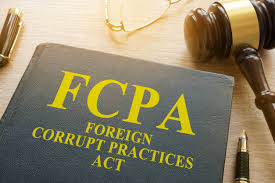DOJ and SEC Close Year with FCPA Settlement with Honeywell UOP for $160 Million (Part I of III)

The Justice Department and the Securities and Exchange Commission had a strong FCPA enforcement year. However, there is certainly more to come and it is easy to predict that 2023 will be even a bigger year. It is fairly obvious that DOJ and the SEC have cases in the pipeline and with new policies in place, they are getting ready to move them through the settlement approval process. So, hold on for a big 2023.
Honeywell UOP (“Honeywell”) is a U.S.-based subsidiary of Honeywell International, Inc. The settlement resolved bribery charges in the United States and Brazil stemming from bribes paid to high-ranking officials at Petrobras, Brazil’s state-owned oil company.
Honeywell agreed to a three-year deferred prosecution agreement (“DPA”), which was filed in the Southern District of Texas (Houston). Honeywell agreed to pay approximately $79 million in exchange for the DPA. Concurrently, Honeywell settled with the SEC and agreed to pay $81 million in disgorgement and prejudgment interest. Also, Honeywell resolved charges with Brazilian authorities and agreed to pay approximately $39 million. This payment was credited against Honeywell’s obligation to pay $79 million to the DOJ.
Between 2010 and 2014, Honeywell conspired to offer a $4 million bribe to a high-ranking executive of Petrobras in Brazil in an attempt to secure a valuable $425 million contract to design and build a refinery. To execute this scheme, Honeywell hired a sales agent to funnel the $4 million bribe to the Petrobras executive. In exchange for the bribe, Honeywell gained access to inside information and secret assistance related to the refinery construction project. Honeywell successfully won the contract to design and build the refinery. Honeywell earned approximately $105.5 million in profits from the corrupt scheme.

The SEC’s settlement covered not only the Brazil misconduct but bribery conduct that occurred in 2011 in Algeria.
Honeywell agreed to continue to cooperate with DOJ, and Honeywell and its parent, Honeywell International Inc., agreed to continue to enhance its compliance program and provide annual reports concerning the implementation of its enhanced compliance program. DOJ did not assign an independent compliance monitor.
Under DOJ’s Corporate Enforcement Policy, Honeywell did not receive voluntary disclosure credit since DOJ’s investigation was initiated before Honeywell decided to cooperate with the investigation. Honeywell received full credit for its cooperation, which included: proactively disclosing certain evidence of which DOJ was unaware; providing information obtained through its internal investigation, which allowed DOJ to preserve and obtain evidence as part of its own independent investigation; making detailed presentations to DOJ; voluntarily facilitating interviews of employees; and collecting and producing voluminous relevant documents and translations to DOJ, including documents located outside the United States.

Honeywell also promptly engaged in remedial measures, including terminating and disciplining certain employees involved in the misconduct and strengthening its compliance program. Honeywell expanded its compliance program by hiring experienced and qualified compliance professionals, and took steps to embed compliance and ethical values at all levels of the business organizations. Further, Honeywell took steps to eliminate its use of sales intermediaries and implemented an automated sales intermediary due diligence tool that requires responsible managers to provide quarterly compliance certifications.
Applying all of these considerations, DOJ awarded Honeywell a 25 percent discount from the bottom of the applicable guidelines fine range.















